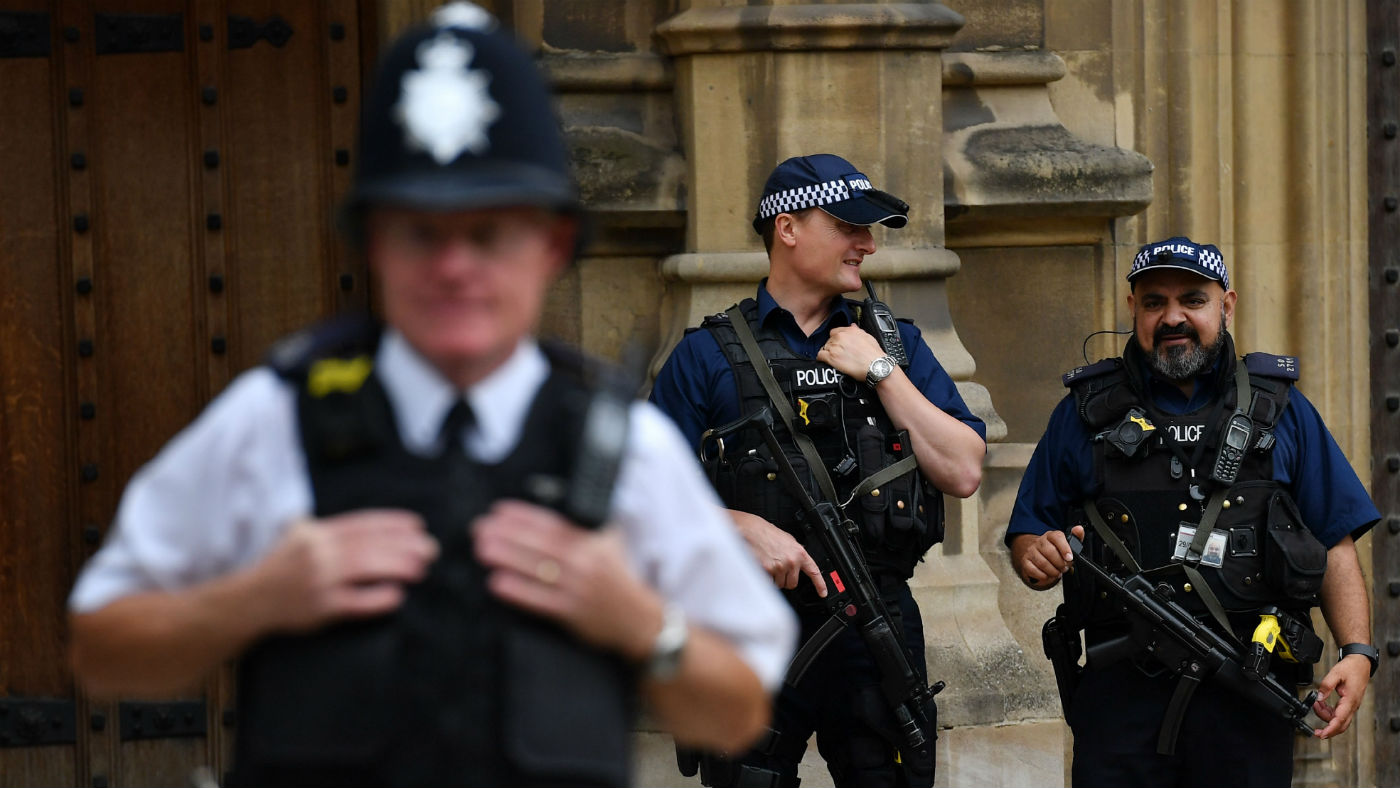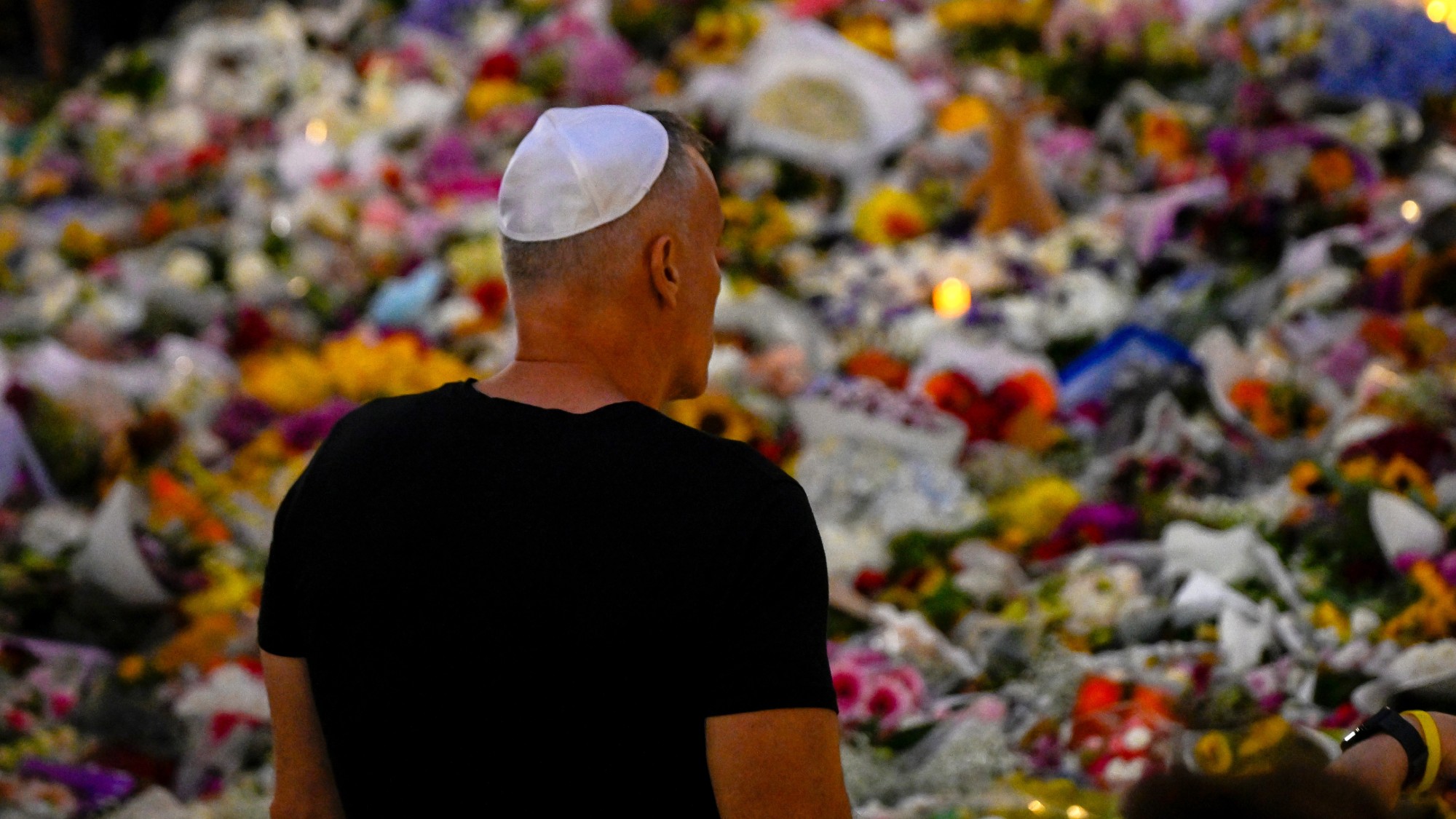Does the UK counter-terrorism bill threaten free speech?
MPs says parts of government legislation ‘cross line on human rights’ and must be amended

A free daily email with the biggest news stories of the day – and the best features from TheWeek.com
You are now subscribed
Your newsletter sign-up was successful
The government’s new counter-terrorism bill crosses the line on human rights and could restrict free speech and curb access to information, MPs and rights group have claimed.
Unveiled in the summer to little fanfare or media scrutiny, the Counter-Terrorism and Border Security Bill proposes broad stop-and-search powers for border guards on the proviso of tackling “hostile state” activity. It would also criminalise travel to terrorist hotspots and the viewing of terrorist-linked material online.
The Home Office says the measures will close gaps in existing counter-terrorism legislation to ensure it reflects contemporary patterns of radicalisation, and that anyone with a “reasonable excuse” for viewing the material, like journalists or people who access it by accident, will be protected from prosecution.
The Week
Escape your echo chamber. Get the facts behind the news, plus analysis from multiple perspectives.

Sign up for The Week's Free Newsletters
From our morning news briefing to a weekly Good News Newsletter, get the best of The Week delivered directly to your inbox.
From our morning news briefing to a weekly Good News Newsletter, get the best of The Week delivered directly to your inbox.
The influential cross-party joint committee on human rights, however, says elements of the government’s proposals should be removed or clarified to remedy the “defects” it has identified. The Guardian reports.
Peers and MPs said one clause, which would make statements deemed supportive of a banned group illegal, restricted free speech and could criminalise “valid debates” on what organisations should be banned.
Committee chair, Labour MP Harriet Harman, said: “The government has failed to give us adequate justification for provisions which risk undermining free speech and giving them wide and unaccountable powers” claiming that “despite our previous warnings, this bill still crosses the line on human rights”.
The bill has also been denounced by the UN Special Rapporteur on the right to privacy, who accused the government of straying towards “thought crime”, while Max Hill QC, the outgoing Independent Reviewer of Terrorism Legislation, said he found it “difficult to countenance”.
A free daily email with the biggest news stories of the day – and the best features from TheWeek.com
Human Rights Watch says criminalising travel to areas the government designates terrorist risk zones “could obstruct family visits, news reporting, and aid work, and erode rights to consult a lawyer during stops at ports, airports, and borders”.
HRW’s western Europe researcher, Kartik Raj, describes the bill as “a deeply flawed piece of legislation, premised on a dangerous logic, which sends a poor signal to states with fewer safeguards and less robust oversight”, adding his voice for calls for it to be amended.
The Law Society has also criticised the legislation, which is currently making its way through parliament, arguing it would also “undermine access to legal advice”.
Flagging up multiple concerns that appear to undermine suspects' rights to legal advice, the Law Society warned suspects detained under the new legislation could be questioned for an hour unaccompanied by a solicitor.
Even when a solicitor is present, Society President Christina Blacklaws says the bill undermines a suspect's right to communicate confidentially with a lawyer. The bill states that a detainee may consult a solicitor “only in the sight and hearing of a qualified officer”.
Others, however, disagree and argue new anti-terror legislation is essential to guard against ever more sophisticated terror threats.
Writing on HuffPost UK, Richard Ekins, head of the Policy Exchange’s Judicial Power Project, says the bill is a chance “to help make our country safer”, arguing that the inclusion of a new offence which punishes those entering a “designated terrorist area”, is crucial “to establish a simple ground on which to convict British citizens who pursue jihad abroad”.
“The Bill is not all about terrorism. It responds also to the threat posed by sovereign states” he adds, saying that “states like Russia are ever more likely to attack the UK in ways falling short of outright armed conflict, ranging from cyberattacks and use of chemical weapons to severing undersea cables.”
-
 Why is the Trump administration talking about ‘Western civilization’?
Why is the Trump administration talking about ‘Western civilization’?Talking Points Rubio says Europe, US bonded by religion and ancestry
-
 Quentin Deranque: a student’s death energizes the French far right
Quentin Deranque: a student’s death energizes the French far rightIN THE SPOTLIGHT Reactions to the violent killing of an ultraconservative activist offer a glimpse at the culture wars roiling France ahead of next year’s elections
-
 Secured vs. unsecured loans: how do they differ and which is better?
Secured vs. unsecured loans: how do they differ and which is better?the explainer They are distinguished by the level of risk and the inclusion of collateral
-
 How the ‘British FBI’ will work
How the ‘British FBI’ will workThe Explainer New National Police Service to focus on fighting terrorism, fraud and organised crime, freeing up local forces to tackle everyday offences
-
 How the Bondi massacre unfolded
How the Bondi massacre unfoldedIn Depth Deadly terrorist attack during Hanukkah celebration in Sydney prompts review of Australia’s gun control laws and reckoning over global rise in antisemitism
-
 Who is fuelling the flames of antisemitism in Australia?
Who is fuelling the flames of antisemitism in Australia?Today’s Big Question Deadly Bondi Beach attack the result of ‘permissive environment’ where warning signs were ‘too often left unchecked’
-
 Ten years after Bataclan: how has France changed?
Ten years after Bataclan: how has France changed?Today's Big Question ‘Act of war’ by Islamist terrorists was a ‘shockingly direct challenge’ to Western morality
-
 Arsonist who attacked Shapiro gets 25-50 years
Arsonist who attacked Shapiro gets 25-50 yearsSpeed Read Cody Balmer broke into the Pennsylvania governor’s mansion and tried to burn it down
-
 Manchester synagogue attack: what do we know?
Manchester synagogue attack: what do we know?Today’s Big Question Two dead after car and stabbing attack on holiest day in Jewish year
-
 The Miami Showband massacre, 50 years on
The Miami Showband massacre, 50 years onThe Explainer Unanswered questions remain over Troubles terror attack that killed three members of one of Ireland's most popular music acts
-
 The failed bombings of 21/7
The failed bombings of 21/7The Explainer The unsuccessful attacks 'unnerved' London and led to a tragic mistake